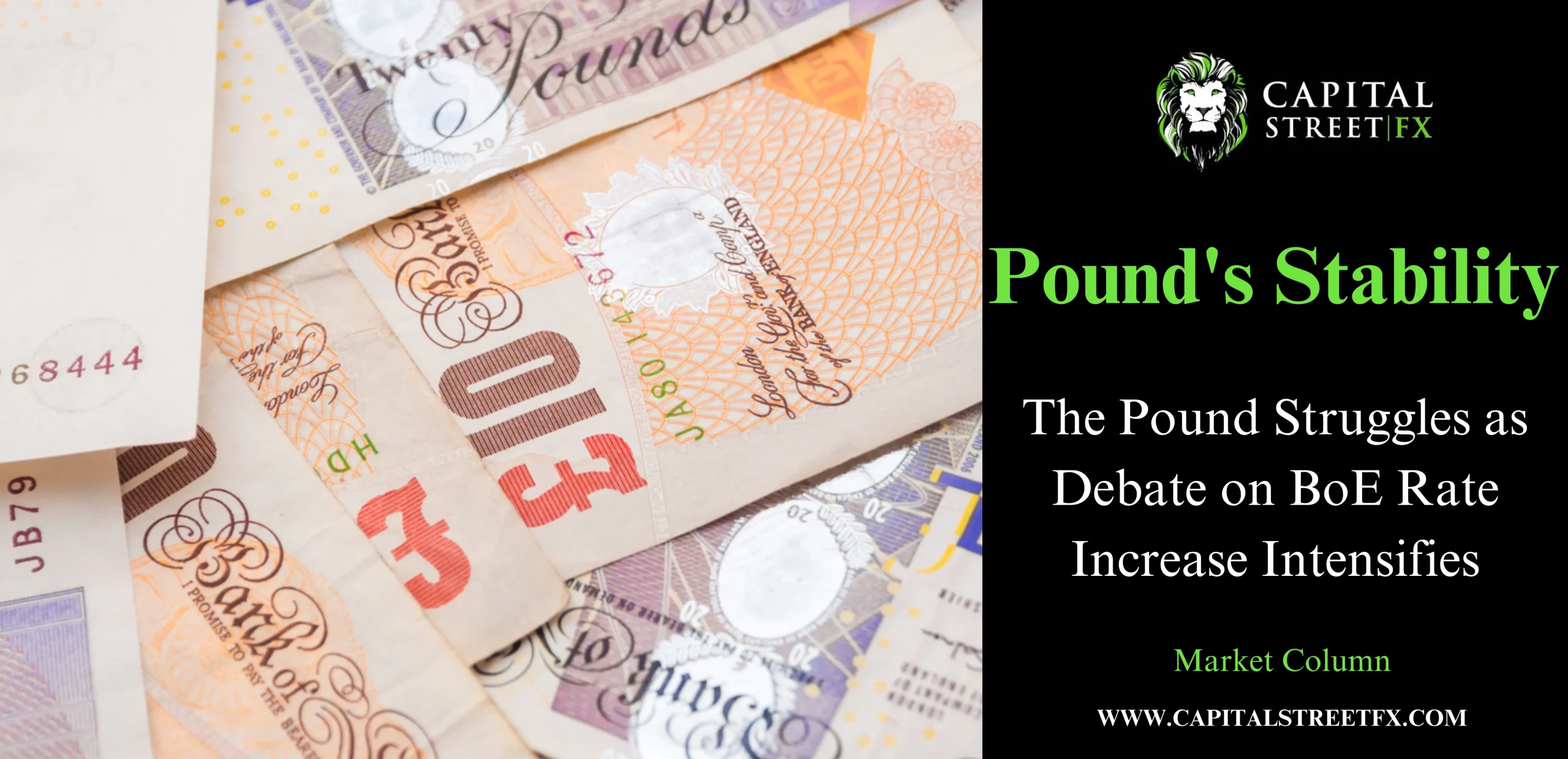The Pound Struggles as Debate on BoE Rate Increase Intensifies.
Introduction
In recent discussions, the Bank of England’s (BoE) rate increase strategy to tackle inflation has sparked a heated debate. While some experts advocate for only two more rate hikes, others predict a more aggressive approach. As these deliberations unfold, the pound remains relatively stable against the dollar.
Pound’s Performance and Expectations
The GBP/USD experienced a slight decline of 0.07%, settling at $1.2702. MUFG, a prominent financial institution, suggests that only two more rate hikes are likely. They believe that such an approach will diminish the current yield support for the pound, countering the expectation that the BoE still has a long way to go before concluding its rate-hike cycle.
Adjusting Inflation Expectations
MUFG further states that the U.K. overnight index swap (OIS) pricing, projecting an additional 130 basis points of tightening through the turn of the year, is excessive. As market observers witness inflation gradually subsiding, it is expected that these projections will be revised downward. A significant contributor to the decline in short-term inflation expectations is the decrease in food costs, followed by a 17% reduction in electricity bills due to the government’s price restrictions implemented on July 1.
Differing Perspectives on Rate Hikes
Despite these assessments, some remain unconvinced. Concerns persist that the BoE will encounter challenges in reaching its target inflation rate of 2%. JPMorgan, for instance, suggests that there is a possibility of the BoE raising rates from the current 5% to 7%. This scenario arises as consumers benefit from higher average salaries, mitigating the impact of increased mortgage rates caused by the BoE’s 18-month rate-hike cycle.
Potential Recession and Inflation Control
If inflation remains difficult to control, the BoE might be compelled to adopt a more aggressive stance on rate hikes. However, such a move could potentially push the economy into a recession, as it becomes an uphill battle to manage inflation effectively.
JPMorgan’s Concerns
JPMorgan recently released a report stating that the likelihood of a significant shift or a “hard landing” in the near future is increasing. They believe that such a development is necessary for the UK to regain control over inflation.
BoE’s Response
During the annual central bank conference held in Sintra, Portugal, BoE Governor Andrew Bailey refrained from commenting on market expectations regarding additional rate hikes. This silence from the governor adds further intrigue to the ongoing discussion surrounding the BoE’s rate-hike trajectory.
Conclusion
As discussions surrounding the Bank of England’s rate increase strategy continue, the pound remains steady against the dollar. While some experts advocate for only two more rate hikes, others foresee a potentially more aggressive approach. The market closely watches the adjustments in inflation expectations, particularly in relation to falling food costs and the reduction in electricity bills. It remains to be seen how the BoE will navigate this complex landscape and address the challenges of controlling inflation while maintaining economic stability.
FAQs
1. How is the pound performing against the dollar amid rate hike discussions?
The pound has experienced a slight decline of 0.07% against the dollar, reaching $1.2702.
2. How many more rate hikes does MUFG anticipate?
MUFG expects only two more rate hikes from the Bank of England.
3. What is the U.K. overnight index swap (OIS) pricing indicating?
The current OIS pricing suggests an excessive 130 basis points of tightening, which is expected to be adjusted lower as inflation decreases.
4. Which factors are primarily contributing to the decline in short-term inflation expectations?
Falling food costs and a 17% reduction in electricity bills due to the government’s price restriction on energy are the primary factors influencing the decline in short-term inflation expectations.

